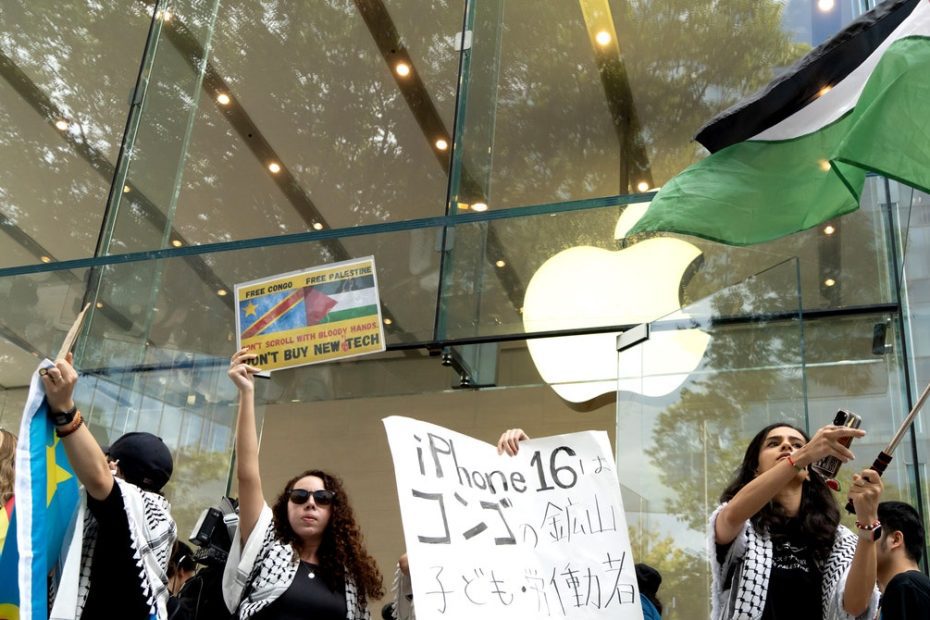Customers around the world flocked to Apple Stores on Friday to purchase the iPhone 16 on launch day. But customers in more than a dozen cities were met with protests organized by current and former Apple employees.
The protesters, carrying signs and banners declaring that Apple is “profiting from genocide,” demanded that Apple stop sourcing cobalt from the Democratic Republic of Congo, where mines are notorious for dangerous conditions, low wages, widespread use of child labor and human rights abuses.
Apple has said it does not source minerals from mines where these conditions exist, though the company has said it faces “challenges” in tracking its mineral supply chains. In 2022, that tracking led the company to remove 12 suppliers. The Congolese government recently questioned the company over possible “blood minerals” in its supply chain.
The protesters also called on Apple to break its silence on the ongoing war in Gaza, which some human rights experts have called a genocide.
The protests, which took place in 10 countries, were organized primarily by Apples Against Apartheid, a group of five current Apple employees and about a dozen former Apple employees, who have mostly held retail positions at Apple Stores.
The group, originally called Apples4Ceasefire, worked with the organization Friends of the Congo and local activist groups in cities around the world. Social media posts showed protesters holding banners outside Apple stores in Bristol, Reading, London, Tokyo, Brussels, Cape Town, Amsterdam, Mexico City, Montreal and Cardiff. In the United States, protests took place outside Apple's flagship store on Fifth Avenue in Manhattan, and in Palo Alto and Berkeley.
Many of these protests had only a few participants, often waving large banners and large flags of the Democratic Republic of Congo and Palestine. Most of the physical protesters were not Apple employees themselves.
The largest turnout was in Berlin, where more than three dozen people participated in the protest. They chanted from behind a barricade that kept them at a distance from the Apple Store. Footage shows police moving protesters further away and arresting one person wearing a keffiyeh. Tariq Ra'Ouf, a leading organizer with Apples Against Apartheid, tells WIRED that five protesters were arrested.
Ra'Ouf worked at an Apple Store in Seattle for 12 years before being fired in July. They say they were let go over a “technical issue” that they believe “should have been a warning of misconduct.” They believe their firing was likely in retaliation for publicly challenging the company on “anti-Palestinian bias and racism.” Apple did not immediately respond to a request for comment on the protest or Ra'Ouf's claim.
“The idea is that we want to bring this to them as consumers, and so we want to disrupt their biggest day of the year as much as possible,” Ra'Ouf tells WIRED. “We want [them] to assess how much money they make on launch day and how many phones they can sell, and to really show them visibly that there is a lot of support for these communities, but they're just ignoring it.”

